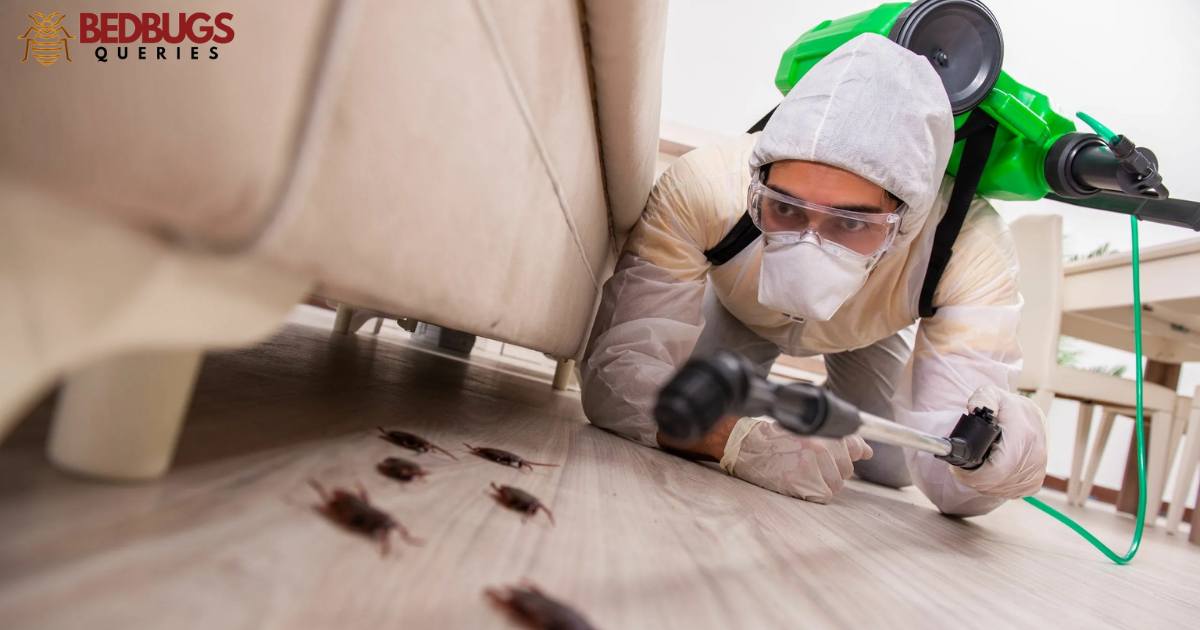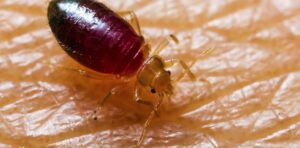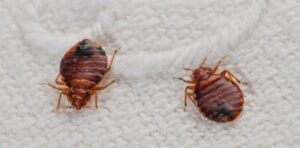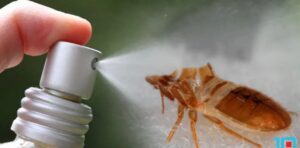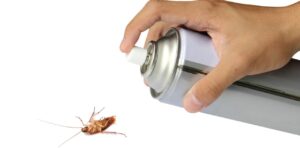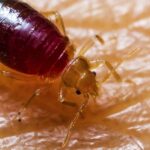When bed bugs invade your home, the urgent question that arises is, Does fumigation kill bed bugs? Bed bug infestations can be a nightmare, and fumigation is often considered an effective solution. In this article, we will explore the efficacy of fumigation in eradicating bed bugs and provide you with the essential information you need to make an informed decision.
Imagine the discomfort of waking up to itchy, red welts on your skin, the telltale signs of a bed bug infestation. Desperation sets in, and you wonder if fumigation is the answer to your bed bug woes. We’ll delve into the science behind fumigation and its success rate in eliminating these pesky parasites, helping you regain your peace of mind and a bug-free home.
:
Fumigation can indeed kill bed bugs when executed correctly. This method involves using pesticides in a gaseous form, which penetrates cracks and crevices where bed bugs hide. However, it’s essential to note that fumigation is a complex process best performed by professionals. We will discuss the pros and cons of fumigation and provide tips for preparing your home for this bed bug extermination method.
Understanding the Bed Bug Menace
Before we dive into the effectiveness of fumigation, it’s crucial to understand the enemy we’re dealing with. Bed bugs are small, parasitic insects that feed on the blood of humans and animals. They are notorious for their resilience and ability to hide in cracks and crevices, making them challenging to exterminate.
The Bed Bug Life Cycle
Bed bugs go through a series of life stages, including eggs, nymphs, and adults. Understanding their life cycle is essential in devising effective eradication methods.
The Health and Psychological Impact
When bed bugs invade your living space, their presence goes beyond mere physical discomfort. The health and psychological impact of a bed bug infestation can be profound, affecting both your well-being and peace of mind. Here, we’ll explore the various aspects of this impact:
- Bed bug bites can lead to red, itchy welts on the skin, which can be not only uncomfortable but also potentially lead to secondary infections if scratched excessively.
- Some individuals may develop allergies to bed bug bites, further complicating the physical consequences.
- The mere thought of bed bugs in your home can lead to high levels of stress and anxiety. The constant fear of being bitten or finding more bugs is mentally taxing
- Bed bugs are nocturnal pests, and their bites can disrupt your sleep, leading to fatigue and irritability.
- The stigma associated with bed bug infestations can result in embarrassment and social isolation.
- Dealing with a bed bug infestation often comes with significant expenses for pest control services, replacement of infested belongings, and professional cleaning.
- Bed bugs can infest and damage furniture, clothing, and other personal items, leading to financial losses.
- The constant fear and discomfort can erode your quality of life, making your own home feel like an unwelcome place.
The health and psychological impact of bed bug infestations is not to be underestimated. It can affect your physical well-being, mental health, and overall quality of life. Seeking prompt and effective solutions, such as fumigation or other extermination methods, is essential to mitigate these detrimental effects and regain a sense of normalcy and comfort in your living environment.
Regenerate.
The Science Behind Fumigation
Fumigation is a method that has been used for decades to control various pests. But how does it work, and does it truly kill bed bugs?
How Fumigation Targets Bed Bugs
Fumigation involves the use of gaseous pesticides to eliminate pests. Learn how this method penetrates the hiding places of bed bugs, ensuring that no corner remains untouched.
Chemicals Used in Bed Bug Fumigation
Fumigation relies on specific chemicals to exterminate bed bugs. We’ll explore the types of chemicals used and their effectiveness in eradicating these pests.
Efficacy of Fumigation in Bed Bug Eradication
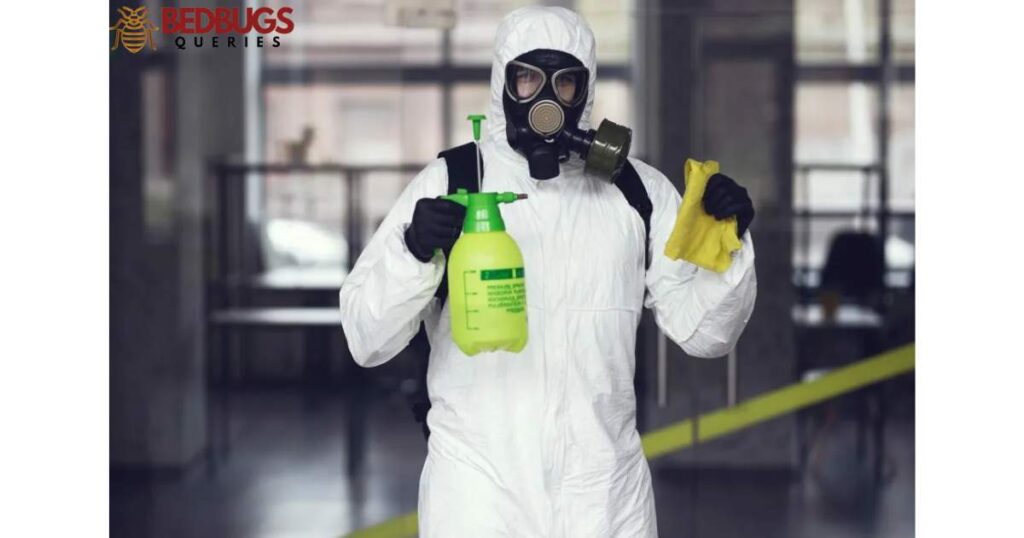
Fumigation is often considered a powerful weapon in the battle against bed bugs, but just how effective is it in eradicating these persistent pests? The answer lies in understanding the science behind fumigation and the methods used to target bed bugs. Research and studies have shown varying degrees of success, but the efficacy depends on several factors, including the severity of the infestation, the thoroughness of the preparation, and the type of chemicals used.
Successful bed bug eradication through fumigation demands precision and a comprehensive approach. It’s not a one-size-fits-all solution, and its effectiveness can be influenced by these crucial points:
- Infestation Severity: The extent of the bed bug infestation plays a significant role in determining the efficacy of fumigation. While it can be highly successful in treating severe infestations, it may be overkill for minor problems.
- Preparation and Follow-up: Thorough preparation before fumigation and careful follow-up measures post-treatment are imperative. Failure to prepare adequately or address potential reinfestation sources can reduce the effectiveness of fumigation.
- Chemical Selection: The choice of chemicals used in fumigation is critical. Some bed bug populations have developed resistance to certain pesticides, so selecting the right chemical is crucial for success.
- Professional Expertise: The experience and skill of the fumigation professionals also contribute to its efficacy. Professionals are well-versed in the proper application of fumigation methods, increasing the chances of success.
- Monitoring and Evaluation: Regular monitoring and evaluation after fumigation can help detect any resurgence of bed bugs and address it promptly, ensuring a successful eradication.
Success Rates and Effectiveness
Fumigation is a widely used method for bed bug eradication. Its effectiveness varies based on several factors, including infestation severity, preparation, and chemical choice. Here’s an overview of its success rates:
| Factor Affecting Success | Impact on Effectiveness |
| Infestation Severity | More severe infestations may require multiple fumigations. |
| Preparation and Follow-up | Thorough prep and post-treatment measures are essential. |
| Chemical Selection | The right choice of chemicals is critical for success. |
| Professional Expertise | Professionals can enhance effectiveness with their expertise. |
| Monitoring and Evaluation | Regular checks prevent reinfestation and ensure success. |
Understanding these factors can help maximize the efficacy of fumigation in bed bug eradication.
Regenerate
Challenges and Limitations
While fumigation has its merits, it’s not without challenges and limitations. We’ll discuss factors that can affect its success, such as the level of infestation and resistance.
Preparing Your Home for Bed Bug Fumigation
Effective bed bug fumigation requires thorough preparation. Here’s what you need to do before the fumigation process begins. A step-by-step guide on how to prepare your home for fumigation, including decluttering, sealing cracks, and removing personal items.
How to Protect Belongings During Fumigation
While fumigation is effective against bed bugs, it can be harsh on certain belongings. Learn how to safeguard your possessions during the process.
Pros and Cons of Using Fumigation for Bed Bugs
Fumigation is a powerful method for tackling bed bug infestations, but it comes with its own set of advantages and drawbacks. On the plus side, fumigation can reach hidden bed bugs in hard-to-reach places, making it highly effective for severe infestations.
However, it’s not without downsides, including the cost, potential inconvenience, and the need for careful preparation. Understanding these pros and cons is essential when deciding if fumigation is the right solution for your bed bug problem. Explore the benefits of fumigation, such as its comprehensive reach and effectiveness in treating severe infestations.
It’s not all rosy with fumigation. We’ll discuss potential downsides, including the cost, inconvenience, and potential environmental impact. If fumigation isn’t the right choice for you, consider alternative bed bug control methods, from heat treatments to natural remedies.
Professional vs. DIY Bed Bug Fumigation: Which Is Better?
When dealing with a bed bug infestation, the choice between professional and DIY fumigation can significantly impact your results. Professionals bring expertise, experience, and access to potent pesticides, offering a higher likelihood of success, especially in severe infestations. They can also ensure your safety and minimize environmental impact.
However, DIY fumigation may be suitable for minor infestations and budget-conscious individuals. It requires research, careful preparation, and the use of less potent over-the-counter products. DIY methods can work if done correctly, but the margin for error is wider, and the risk of reinfestation is higher.
Your choice should align with your specific situation, considering the infestation’s severity, your knowledge, and your ability to follow instructions meticulously. Ultimately, the key to success, whether professional or DIY, lies in thoroughness, ensuring that bed bugs are eradicated and don’t return.
Benefits of Hiring a Professional Exterminator
Professional exterminators have the knowledge and experience to handle fumigation effectively. Learn why their expertise can be a game-changer, If you’re considering a DIY approach, understand the risks and potential rewards, and get practical tips for a successful DIY fumigation.
Fumigation Safety Measures for Bed Bug Extermination
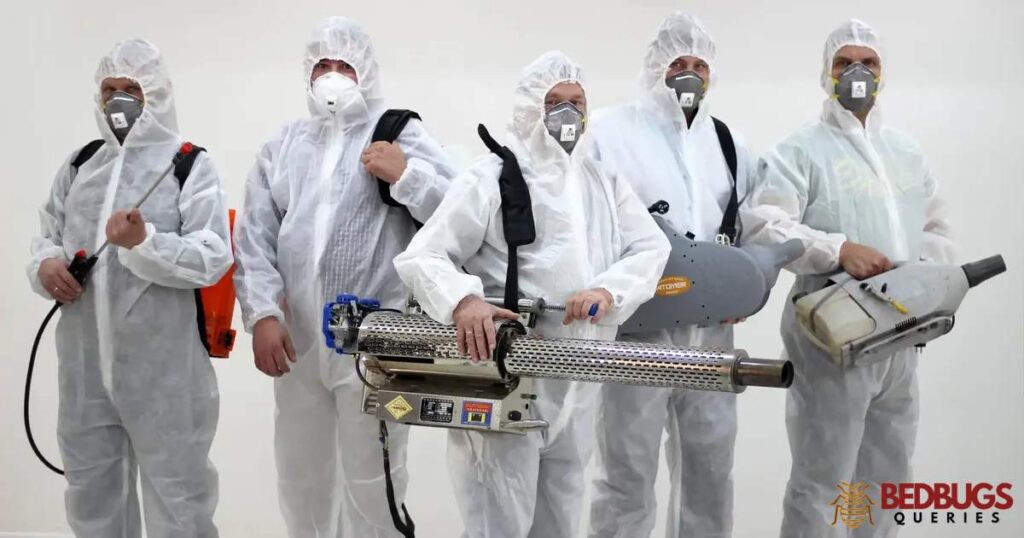
Safety should always be a priority, whether you’re a homeowner or a professional fumigator. Explore the measures to protect human health and the environment.
Health and Environmental Concerns
Understanding the potential health risks associated with fumigation and the importance of minimizing environmental impact.
Ventilation and Air Quality
Proper ventilation is crucial during and after fumigation to ensure safe air quality. Learn how to manage this aspect effectively.
Safety Gear and Precautions
From protective clothing to safety protocols, we’ll cover the necessary precautions to take when handling fumigation chemicals.
Factors Affecting the Success of Fumigation on Bed Bugs
The success of fumigation in eliminating bed bugs is contingent on various critical factors. The severity of the infestation plays a pivotal role, as extensive infestations may necessitate more aggressive fumigation techniques. Proper preparation before fumigation, including decluttering and sealing cracks, is essential to ensure that the pests have nowhere to hide. The choice of chemicals used is also a key determinant, as some bed bug populations have developed resistance to certain pesticides.
Infestation Severity
The extent of your bed bug infestation can significantly impact the success of fumigation. Learn how to assess the severity.
Proper Preparation and Follow-up
Detailed preparation before fumigation and post-fumigation follow-up are crucial for achieving the desired results. We’ll provide a checklist for success.
Resistance and Reinfestation
Bed bugs are known to develop resistance to pesticides. Discover strategies to prevent re infestations and manage resistance issues.
Fumigation Alternatives: Is There a Better Solution?
When bed bugs invade our living spaces, the quest for effective pest control methods intensifies. Fumigation has long been a reliable option, but is there a better solution? In this search for alternatives, we explore a range of options beyond fumigation, from heat treatments to natural remedies. By examining the pros and cons of each approach, we aim to help you make an informed choice in the battle against bed bugs. Discover the diverse world of bed bug extermination methods and find the one that best suits your needs.
Real-Life Success Stories: Fumigation’s Battle Against Bed Bugs
Sometimes, stories of real people’s experiences can be the most convincing. Here are testimonials and case studies that shed light on the effectiveness of fumigation. Hear from individuals who have successfully used fumigation to rid their homes of bed bugs, and learn from their experiences.
What insights can we gather from real-life examples of fumigation? We’ll explore the key takeaways from these stories. Inspirational accounts of people who have overcome severe bed bug infestations through the use of fumigation and other methods.
Do Bed Bugs Glow Under Black Light?
The mysterious world of bed bug detection unfolds with the question Do Bed Bugs Glow Under Black Light? Imagine having a secret tool that reveals these hidden nocturnal creatures, making it easier to identify and address infestations. The answer to this question can provide a unique insight into a potential method for detecting these troublesome bugs.
conclusion
Battle e against bed bugs, fumigation stands as a formidable contender. It dives deep into cracks and crevices, reaching the elusive pests where they hide. But the story isn’t just about success; it’s a tale of meticulous preparation, the right chemicals, and professional know-how.
The effectiveness of fumigation hinges on these critical elements, ensuring a powerful punch against these persistent parasites. It’s not merely about using fumigation; it’s about using it wisely, tackling severe infestations head-on, and safeguarding against reinfestation. Bed bugs may be tenacious, but with the right strategy, fumigation can be a powerful ally in the fight to regain your home and peace of mind.
In the quest for a bed bug-free existence, you hold the keys to success. Fumigation is a valuable tool in your arsenal, but it’s not a silver bullet. By understanding its strengths and limitations, you can make informed decisions about how to combat these bothersome bugs effectively.

